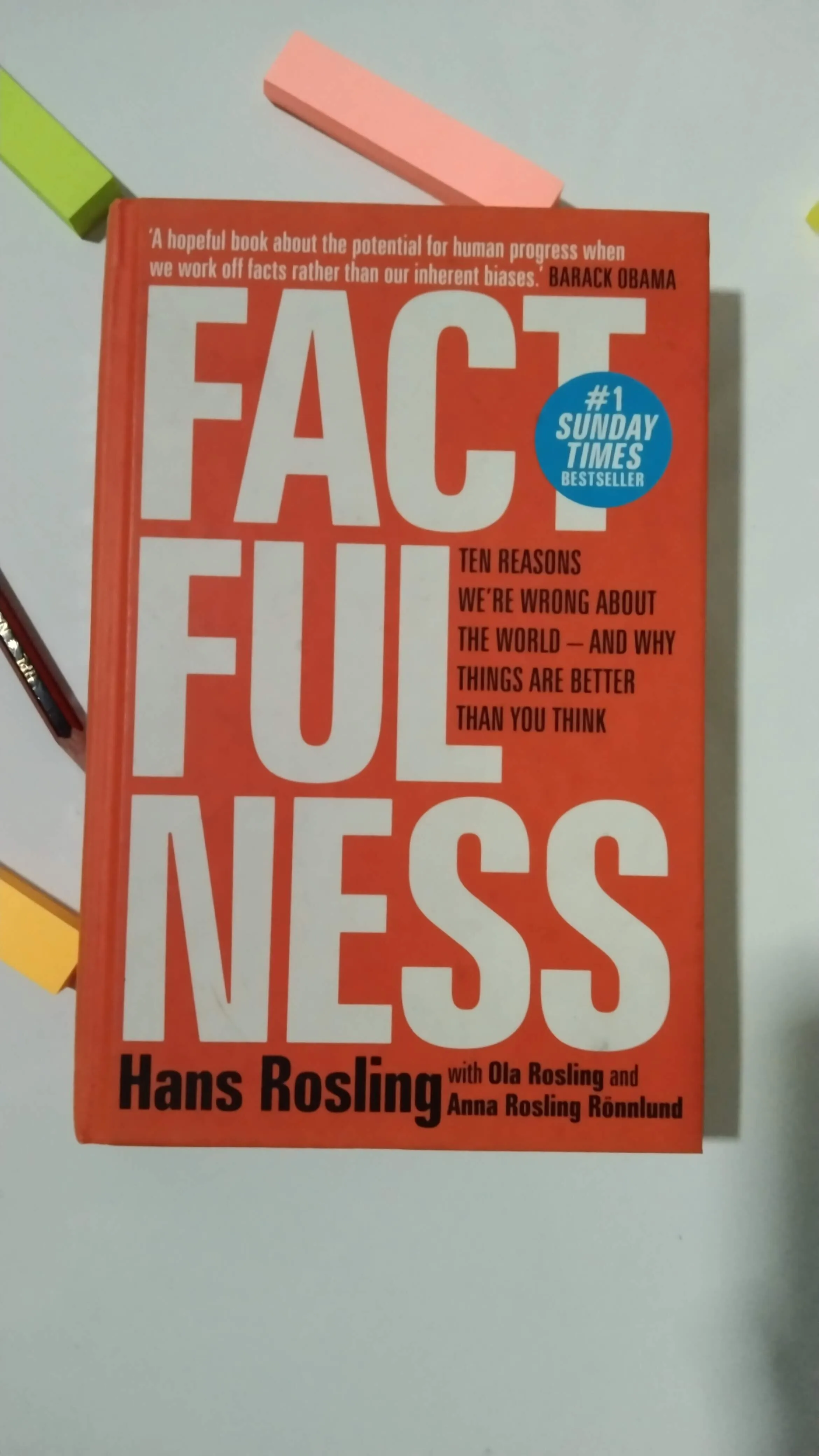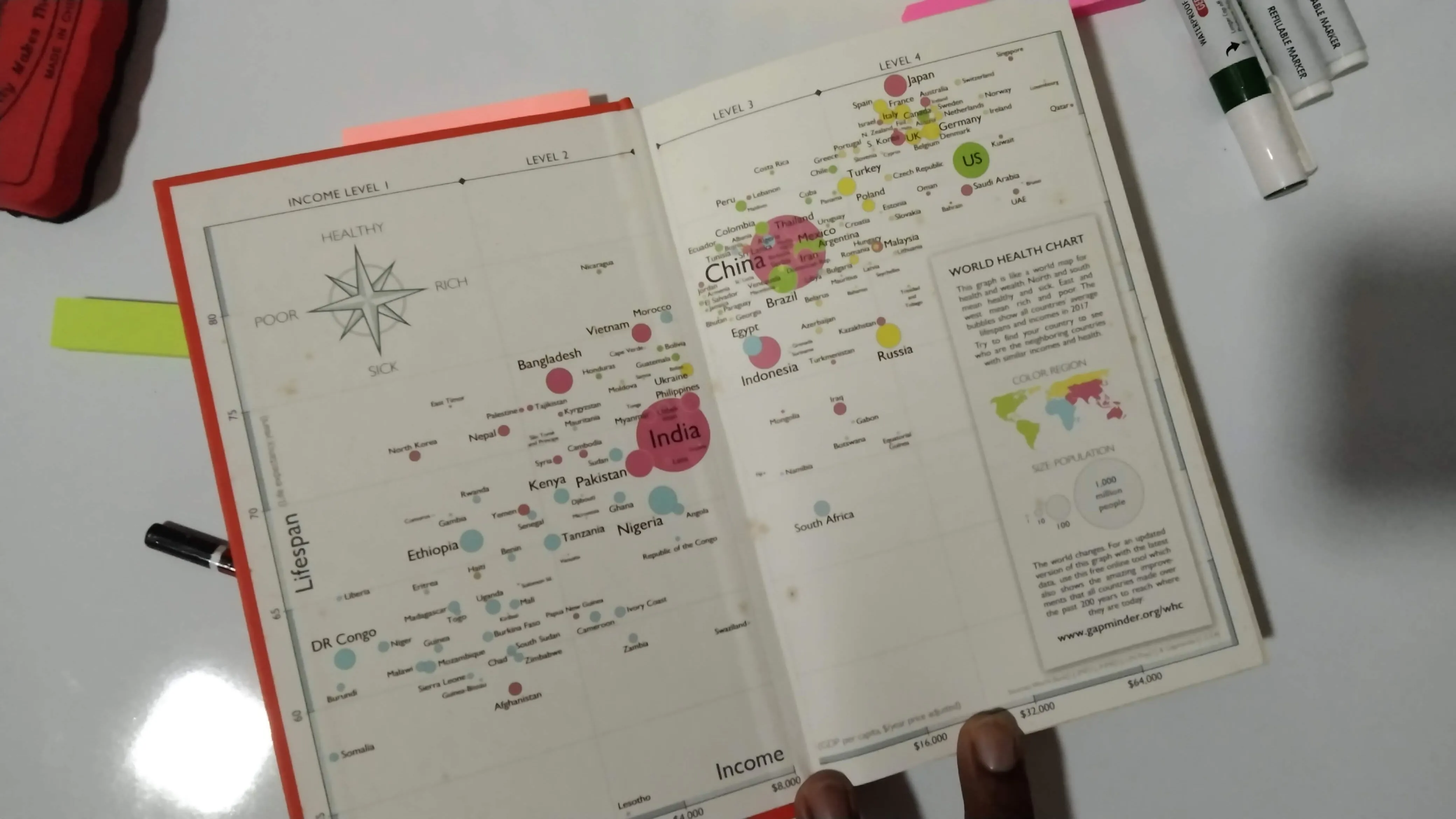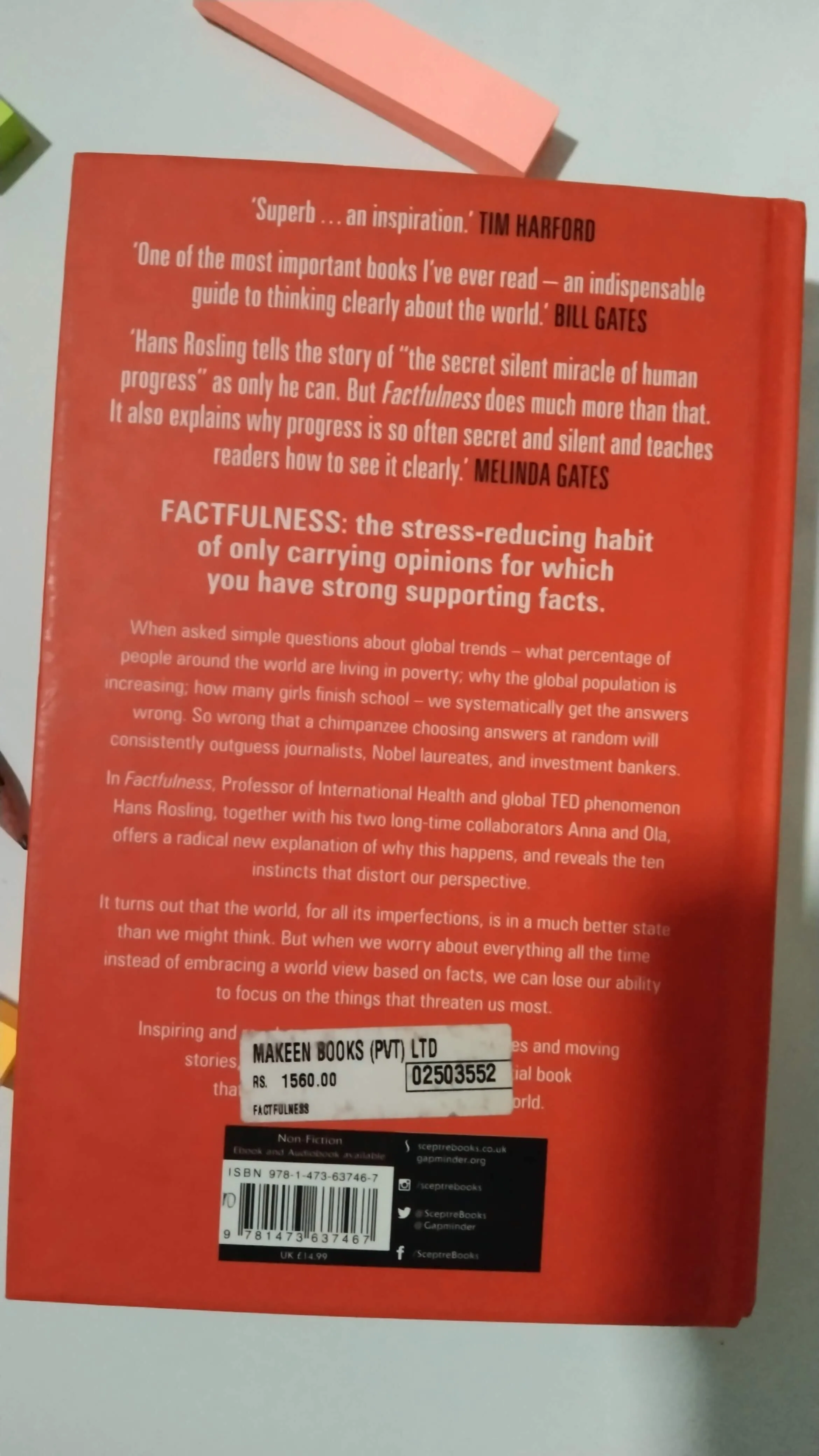Factfulness: Ten Reasons We're Wrong About the World
by Hans Rosling
Provides an evidence-based perspective on the state of the world, by challenging common misconceptions and biases, and presenting data and facts to illustrate that many aspects of the world are actually improving, and it encourages readers to develop a more accurate and nuanced understanding of global issues and trends in order to make more informed decisions and take more effective action.



"The world is not as bad as you think. It's much better. But it's not perfect either."
- Hans Rosling, Factfulness: Ten Reasons We're Wrong About the World
My Review:
A compelling case for why the world is actually a much better place than most of us think it is. He argues that our perceptions of the world are often skewed by a variety of cognitive biases and misconceptions, and that we are therefore often overly pessimistic about the state of the world.
One of the key lessons of the book is that we should be more mindful of the data and evidence that is available to us, and that we should be more skeptical of the sensationalized stories and statistics that we often hear in the media. Rosling also makes a strong case for why we should be more optimistic about the future, and why we should be more proactive in working to address the many challenges that we still face as a global community.
The author uses data and statistics to show the real state of the world. He argues that the world is not as bad as we think it is, but we should not be complacent either. He shows that many areas such as health and education have improved, but there is still much work to be done.
The book is a call to action, to change our perceptions, and to be more proactive in solving problems. It encourages us to be more mindful of the data we consume and to be more optimistic about the future.
Some of the lessons I learned from this book are:
- The world is not as bad as we think it is, but it is not perfect either.
- We have a tendency to be overly pessimistic about the state of the world, and this can skew our perceptions of reality.
- We should be more skeptical of the sensationalized stories and statistics that we often hear in the media.
- We should be more mindful of the data and evidence that is available to us, and use it to make more accurate assessments of the world.
- Many areas such as health and education have improved, but there is still much work to be done.
- We should be more optimistic about the future, and more proactive in working to address the many challenges that we still face as a global community.
- We should be more mindful of the data we consume, and how it shapes our perceptions of the world.
- We should be more proactive in addressing the many challenges that we still face as a global community.
- We should be more mindful of the data we consume, and how it shapes our perceptions of the world.
- We should be more optimistic about the future, and more proactive in working to address the many challenges that we still face as a global community.